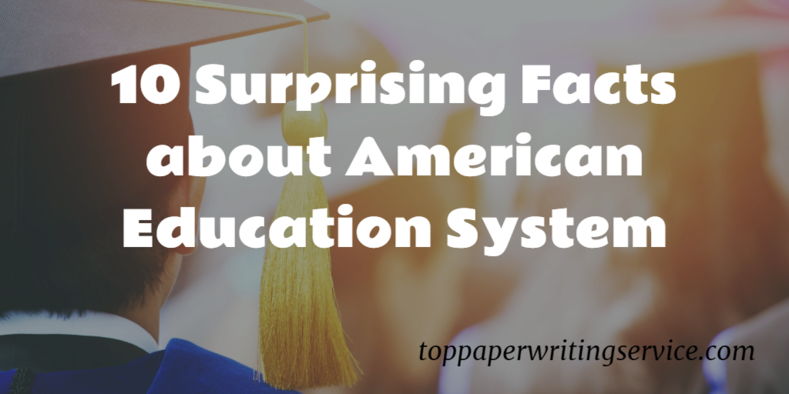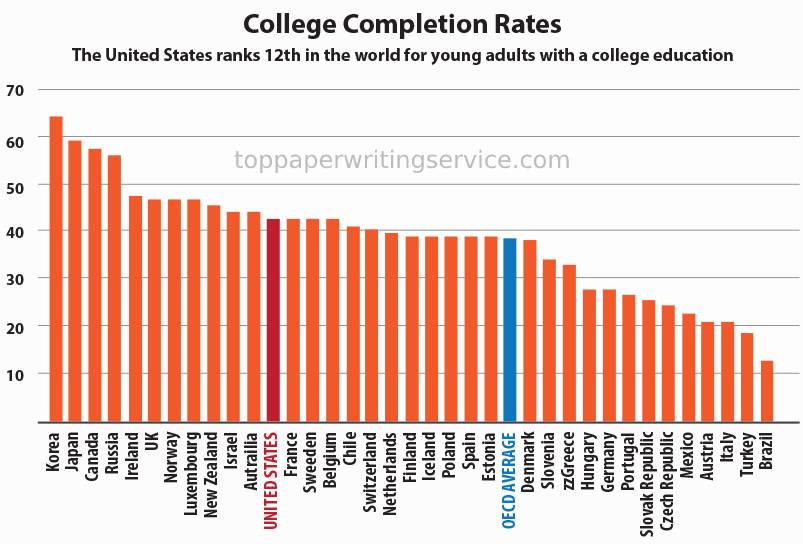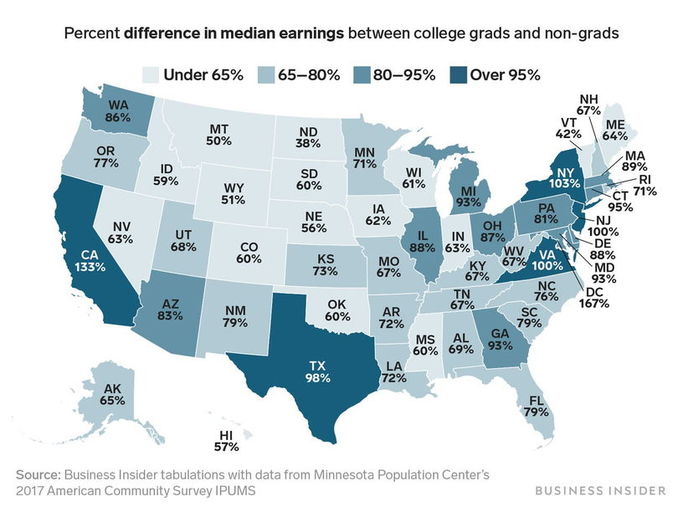
The U.S. educational system is heavily criticized both from the inside and from the outside. We’ve been watching too many movies involving irresponsible students. We have an impression that colleges are mostly about partying.
Others go to the other extreme: they believe that this system is the best one in the world. Professors try to convince their students that they should feel lucky for studying here.
In reality, the American educational system has a solid structure, but it also has its flaws.
Let’s list 10 surprising facts that not everybody knows. Our intention is to bust the myths and show the reality, so we’ll know what aspects to improve and what strengths to emphasize.
10 Interesting Facts about U.S. Education
1. Homeschooling Is One of the Greatest Advantages of the System
The U.S. is one of the few countries with a highly regulated homeschooling system. Although the students have to meet the general requirements, they still have a lot of academic flexibility. The parents adjust the pace of tutoring, so they can meet the current needs of the student.
With the right approach, parents can demonstrate to their children that education is more fun than they assume.
2. Most High School Students Are Not Ready for College
The educational system is failing hard in terms of preparing students for college. In a survey by College Board, almost 50% of the students said they wished they had worked harder in high school, since they don’t feel ready for college now.
The current public education system does not engage students on a high level. The teachers assign too much homework and overwhelm students with boring lectures. That’s one of the most important things that we need to change.
3. The College Graduation Rates Are Dropping
Once upon a time, the U.S. had one of the highest rates of college completion for young adults. Today, we’re way behind Korea, Russia, Ireland, Canada, and other countries. At the same time, the U.S. spends the most money on education, but most of it flows towards rich students.

4. We’re Lagging Behind in Pre-School Rates
Only 40% of three-year-olds attend preschool programs in the U.S. This is a very low rate when compared to Norway, France, and other European countries.
Our country has to improve the preschool programs. It’s where the kids will gain the foundation for their future knowledge.
5. American Employers Value Education
35% of job openings require at least a BA degree.
Students often get inspired by stories about famous college drop-outs, so they assume that the degree is not important. It is. If you plan to get a job instead of starting your own business, you’ll need the degree.
6. Those with a Degree Earn More
No one can argue that the current educational system prepares people for a productive career. College graduates earn more than non-graduates in every state. In some states, the median earnings differ by more than 100%.

7. College Is More Expensive than Ever
In 2019, the average annual cost for a private college was $35,830. Public colleges impose lower costs ($10,230), but let’s face it: they are expensive, too.
These high expenses lead students to large debts, which they will have to repay in the future.
8. High School Dropout Rates Are Getting Serious
We’ve always been aware of the high college dropout rates. However, high school dropout rates are getting more serious than ever. Two students give up on high school every minute. This is a very serious situation. High-school dropouts earn less than graduates.
9. The U.S. Educational System Is Great for International Students
If you’ve ever been on a college campus, you probably noticed several groups of international students. The versatility on U.S. campuses is outstanding. International students get opportunities through scholarships and work-and-study programs. They get high-quality education and a great experience in a foreign country. Most of the international students come from China and other Asian countries.
10. Flexibility Is One of the Greatest Strengths of the System
The American educational system offers great flexibility to students. When they go to college, they don’t have to commit to a specific program. In most European universities, the student chooses the BA program when they start applying. In the U.S., they can start college, try different courses, and choose the major later on. They also choose a minor, which can become a second degree if the student decides to continue with their studies.
Our Educational System Has Flaws and Advantages
Our system is far from perfect. It has serious flaws. For example, the students get too much homework, so they often hire academic writing services. Those are the flaws that we have to work on.
However, we have to be aware of the highlights as well. Our colleges offer high-quality education, and that’s a fact. We only need to find a way to make it more accessible to all categories of students.
Author: Karen Dinkson is an educational expert and blogger. Her works have been published on HuffPost and other educational resources. She loves to stay up to date on the latest educational trends and news.